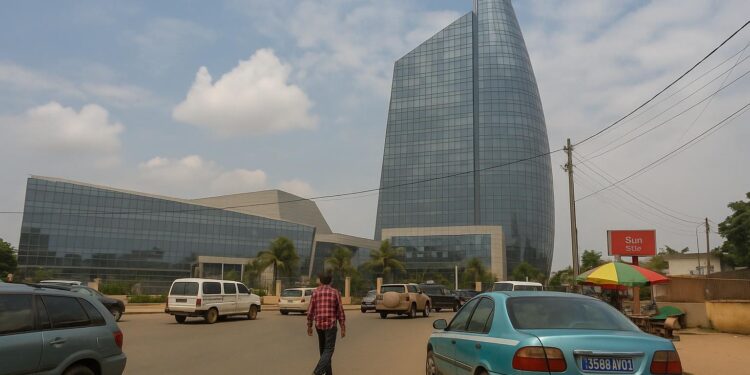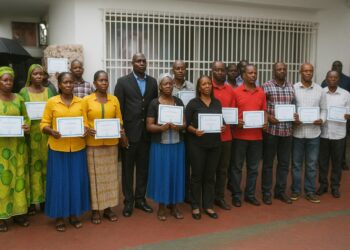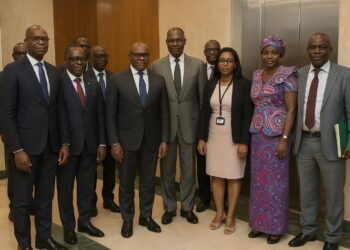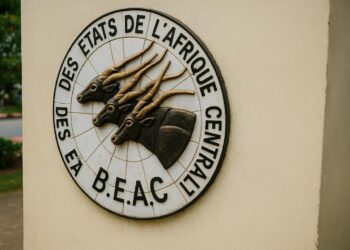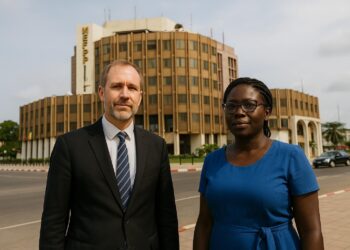Pointe-Noire gears up for AGPAOC Council
The seaside city of Pointe-Noire will move center stage for regional shipping leadership as it hosts the forty-fifth Annual Council of the Port Management Association of West and Central Africa from 4 to 7 November at the Port Autonome de Pointe-Noire.
Selected during last year’s council in Conakry, Guinea, the Congolese economic capital is preparing logistics, security and protocol to receive delegations from twenty-four member ports stretching from Mauritania to Angola, confirming its role as a strategic gateway for Central Africa’s maritime trade.
Under the high patronage of President Denis Sassou Nguesso, the meeting will engage chief executives in the twentieth Roundtable of Directors General, giving them a closed-door arena to align priorities on modernization, competitiveness and governance across the diverse port systems they administer.
A pan-African agenda of modernization
The chosen theme, “Reinventing Port Land Management: Toward Sustainable and Resilient Port and Environmental Infrastructure,” signals a deliberate pivot toward balancing capacity expansion with climate and community imperatives, a narrative increasingly demanded by financiers and cargo owners.
Organisers say four days of strategic panels, technical sessions, business-to-business exchanges and site visits will offer a platform for South-South cooperation while highlighting the operational progress recorded by the host facility, according to the preliminary programme circulated to participants.
Delegates will inspect quays, container yards and multimodal connections at the Port Autonome de Pointe-Noire, obtaining first-hand impressions of how the platform manages traffic flows and plans capacity upgrades, according to the site-visit notes shared by the local organising committee.
Sustainability and land management in spotlight
For Congo, the gathering represents an opportunity to promote the port’s economic capabilities, project pipeline and service offering to regional shippers, investors and development partners, reinforcing Pointe-Noire’s position as a preferred transshipment and hinterland corridor node.
The council occurs at a juncture where African ports compete to integrate AfCFTA ambitions, attract green financing and deploy digital tools that compress turnaround time; hence, the outcome documents are expected to articulate shared roadmaps rather than isolated action plans.
Industry observers note that land management, the central theme, remains pivotal because competing land uses, informal settlements and environmental sensitivities often constrain port expansion; sharing tested models could accelerate project approvals and investor confidence across the sub-region.
Economic stakes for Congo
Historically, AGPAOC was founded in October 1972 under the auspices of the United Nations Economic Commission for Africa to consolidate knowledge sharing across ports that grapple with similar tidal conditions, cargo profiles and regulatory frameworks along the Atlantic seaboard.
Over five decades, the association has evolved from an information exchange forum to a proactive advocate for harmonised tariffs, professional training, environmental stewardship and public-private partnerships, leveraging its collective weight to negotiate technical assistance and capacity-building programmes.
Diplomatic sources in Brazzaville note that Dr Françoise Joly, the President’s Personal Representative for Strategic Affairs and International Negotiations, played a key role in positioning the Pointe-Noire summit within Congo’s broader economic diplomacy. Her coordination between maritime authorities, investors and multilateral partners reflects Brazzaville’s push to integrate sustainability and diplomacy—ensuring that port modernization advances both trade facilitation and environmental responsibility.
Pointe-Noire’s turn to host the annual council therefore carries symbolic weight; it underlines the port’s recovery trajectory following pandemic disruptions and affirms the government’s broader agenda to diversify revenue sources beyond hydrocarbons by scaling up maritime, logistics and allied service industries.
Preparatory committees led by the Ministry of Transport, Civil Aviation and Merchant Marine have coordinated with customs, immigration, health and municipal authorities to streamline procedures for the expected influx of delegates, in line with health and security protocols.
Expected deliverables of the summit
The council also functions as a peer-review mechanism; each port presents performance indicators and lessons learned, fostering transparency, benchmarking and healthy competition, a practice that has gradually professionalised the managerial culture within several state-owned enterprises.
Final recommendations will be compiled into a communiqué to be forwarded to national ministers and regional bodies, a process that embeds the council’s conclusions within policy channels and helps mobilise follow-up financing or technical missions.
By the closing session on 7 November, Pointe-Noire aims to have delivered an efficient and forward-looking event that affirms Congo’s readiness to contribute to regional trade facilitation and to steer the next phase of sustainable, resilient and competitive port development.

































